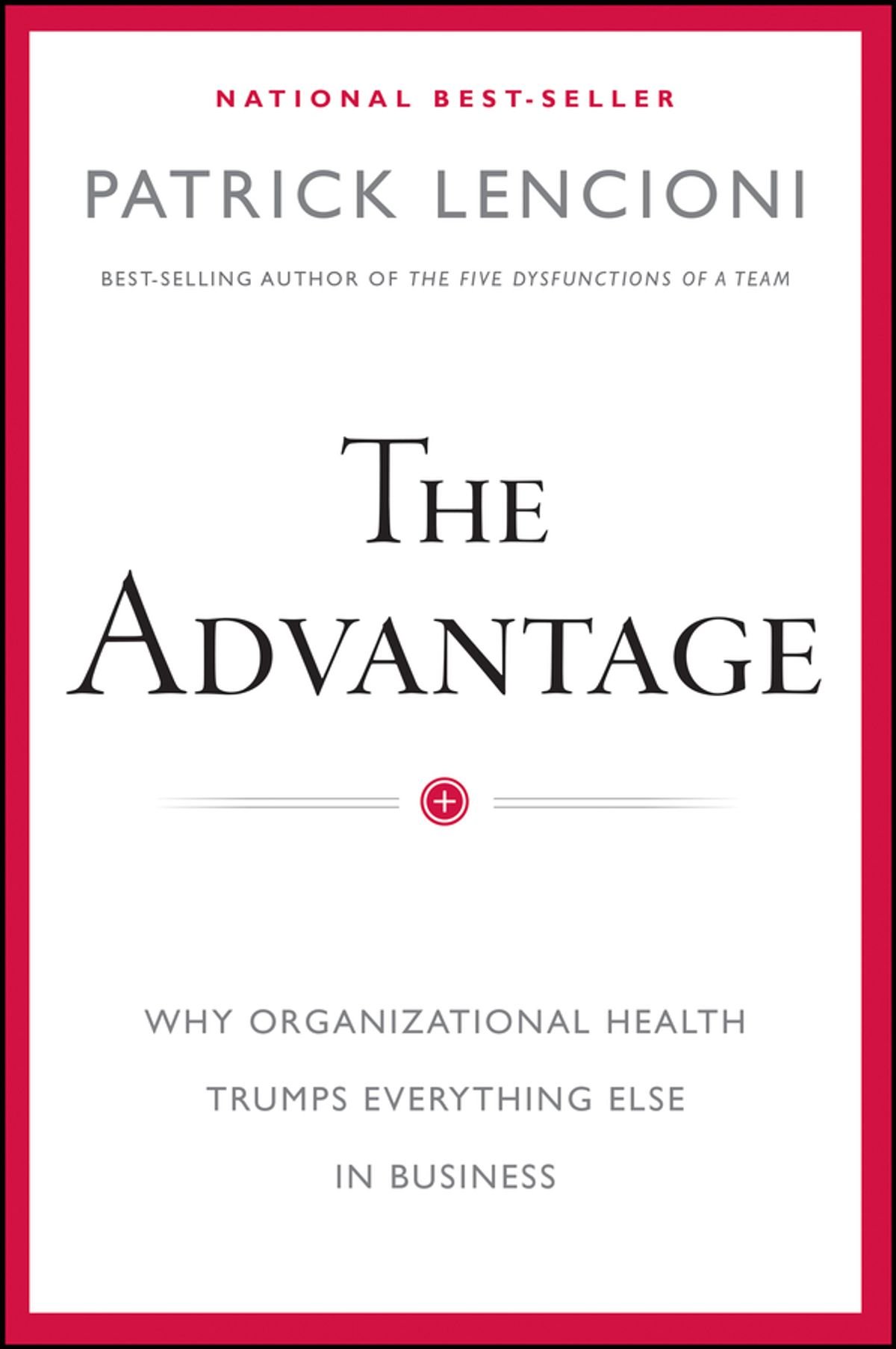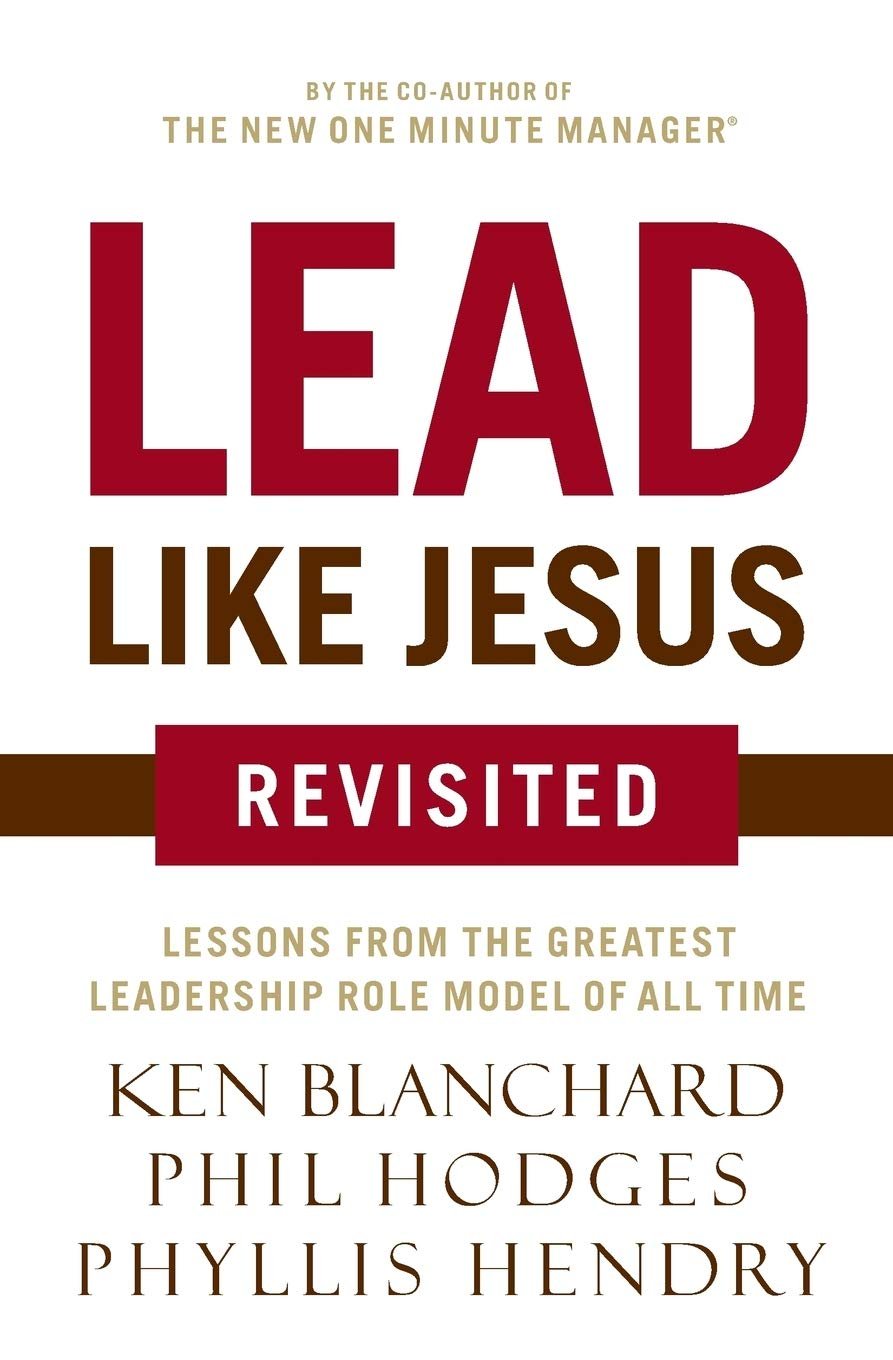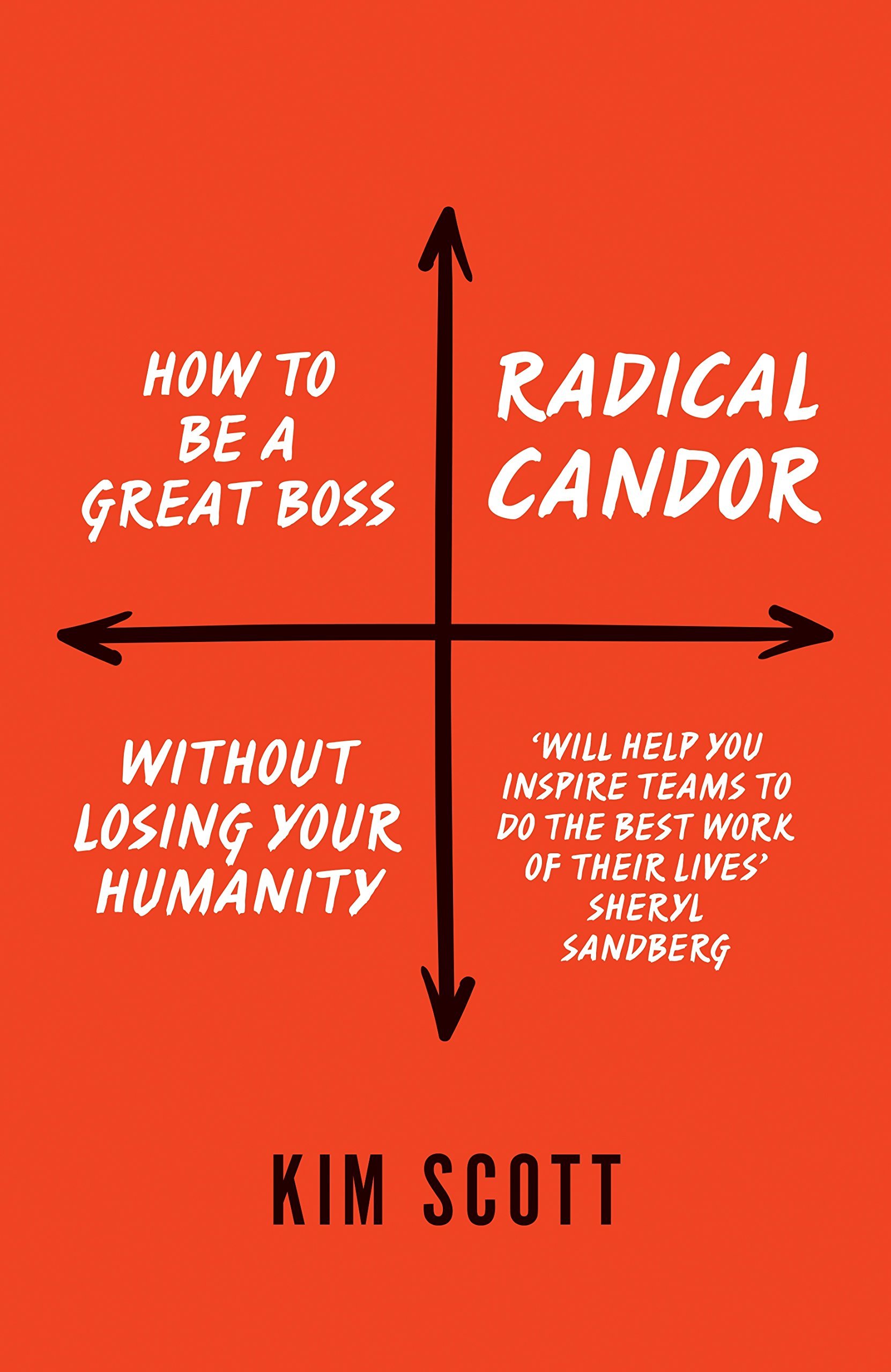5 Leadership Books Worth Buying for Your Team or Your Boss
Be a Rockstar and Read These With Your Co-workers
I'm a sucker for a great book recommendation but haven't always been.
In my 20s I frequently rolled my eyes at over-zealous book suggestions from underwhelming leaders. To this day, I'm still convinced 95% of business books should have been blog posts. It's not because the ideas aren't novel or helpful, they just don't require 200 pages to communicate.
These 5 books are definitely not 200-page puff pieces. Last week I shared 5 titles for making tough career decisions. Today I'll share 5 books that are perfect for reading with your team to simultaneously challenge their mindset while changing how you lead.
1. The Advantage by Patrick Lencioni
What's It About?The Advantage codifies an obvious observation that isn't so easy to execute. Here it is: healthy teams beat smart teams. A healthy organization is consistent and complete when its management, operations and culture are unified, free of politics, empowering and clear. The #1 sign of a healthy team: star performers never want to leave. It takes intellectual courage to build, lead and protect a healthy culture so this books helps instill the confidence necessary to prioritize team health.
My Experience: I was fortunate to help build a healthy team at Patrón for several years while actively rejecting traditional notions of what "smart" teams and people do. Healthy teams optimize for outcomes while smart ones are stuck in a never-ending dance of "decision science". Beware of "best practices", "growth drivers" and "expert consultants" that don't actually benefit your business. Remember, there is an entire industry making exorbitant money from leaders who lack conviction and teams without direction. Solve for the scoreboard.
Excerpts of Borrowed Wisdom:
Being smart in fundamentals - like strategy, marketing, finance and technology - is only half the equation. Yet it occupies almost all the time, energy, and attention of most executives.
An organization that is healthy will inevitably get smarter over time because the people learn from one another, identify critical issues, and recover quickly from mistakes with minimal politics.
Most organizations exploit only a fraction of the knowledge, experience, and intellectual capital that is available to them. But the healthy ones tap into almost all of it.
Conflict is not a bad thing. The fear of conflict is almost always a sign of problems. When there is trust, conflict becomes nothing but the pursuit of truth, an attempt to find the best possible answer. Conflict without trust is politics.
When leadership teams avoid discomfort among themselves, they only transfer it in far greater quantities to larger groups of people throughout the organization they're supposed to be serving.
No matter how good a leadership team feels about itself, if the organization it leads rarely achieves its goals, then by definition, it's simply not a good team.
- Patrick Lencioni
2. Lead Like Jesus by Ken Blanchard
What's It About? Numerous people - religious and non-religious - use the words, ideas and stories of Jesus without actually connecting the dots to who he was historically and how he effectively launched the largest start-up ever.Lead Like Jesus deconstructs the "servant leadership" model into simple, actionable frameworks for motivating & holding others accountable. For companies, churches or families, leading like Jesus looks a lot more like service and less like self-protection. Great book for faith-based teams or even people who have different faith views. Also, the author created the Situational Leadership model still used by companies across the world.
My Experience: Being a know-it-all in my 20s led to tons of opportunities to learn just how much I don't know - example here. In my early 30s this book was a constant companion as I started my role leading global social media at Intuit. I discovered just how much faith and work were originally designed to coexist. Leadership is love and worship is doing work God's way. This was the first (only?) book to provide a detailed model for leaders coaching other leaders. It explains how to move your team along a defined journey by matching their development needs. Just like Jesus.
Excerpts of Borrowed Wisdom:
The tyranny of the "or" suggests that you have to choose results or people. Yet Jesus modeled a "both/and" point of view. He elevated the growth of people to the status of an end goal as important as achieving other results.
Jesus knew his people intimately, he respected them profoundly, and he equipped them to be competent and confident leaders.
If both the leader and the follower are willing to share their own vulnerabilities and support one another in keeping on track, then the best of all results are possible.
Servant leaders realize good results are the applause you get for taking care of the customers and creating a motivating environment for your people.
Jesus did not isolate himself from those who disagreed; he embraced those who disagreed. He did not change his message to gain approval, but he continued to love those who did not accept his message.
Jesus spent significant time interacting in positive ways with people who disagreed with him.
- Ken Blanchard
3. Trillion Dollar Coach by Schmidt & Rosenberg
What's It About?Trillion Dollar Coach captures both the genesis of the most successful tech companies and the genius of one guy seemingly behind it all, Bill Campbell. After coaching college football, Bill helped build Apple, Amazon, Google, Intuit and other high-flying tech behemoths using a now-legendary playbook for developing trust, courage, excellence and effective decision-making. Sadly, Bill left us in 2016 so this book was compiled by the leaders he coached and the lessons he left them. He was also the marketing leader that said "F--- it! Let's run it" when the Apple board vetoed one of the most epic TV ads in history, 1984, and he moved forward anyway. Buy the book now.
My Experience: I sent this to the entire C-suite at Bacardi. Working in tech during the 2000s was essentially an invitation to a never-ending TED talk of Bill's wisdom. As former CEO of Intuit, he sat on the board during my time there and I remember being in a state of awe at how the team culture was the diametric opposite of so much I had learned before. Leaders shared their performance reviews. Billionaire founders still listened to consumer focus groups. Learning from failure was celebrated. I've tried to pay it forward ever since.
Excerpts of Borrowed Wisdom:
Trust means freeing people to do their jobs and make decisions. It means knowing people want to do well and believing that they will. Work the team, then the problem.
Getting to the right answer is important, but having the whole team get there is just as important. The way to get the best idea is to get all opinions and ideas out in the open.
A manager's job is to break ties and make their people better. Only coach the coachable.
Why is marketing losing its clout? Because it forgot its first name: product.
Trust doesn't mean you always agree; in fact, it makes it easier to disagree with someone.
We often feel torn supporting and challenging others. It's a false dichotomy. You want to be supportive and demanding, holding high standards but giving the encouragement necessary to reach them.
Having a well-run process to get to a decision is just as important as the decision itself.
4. How Will You Measure Your Life? by Clayton Christensen
What's It About? This is a book of questions instead of answers. But these are the questions we often overlook or delay to our detriment. How Will You Measure Your Life? takes Clayton's revolutionary knack for framing innovation problems and applies it to the most important project - your life. He uses his family, career and colleagues to construct a handbook for high achievers who want to center their lives on integrity, true satisfaction and enduring happiness. Drawing on reflections after a cancer diagnosis, this is a refreshingly personal read from one of the most brilliant business minds of modern time. Clayton passed away last year after another battle with cancer, giving this book a lucid urgency worth exploring as a team.
My Experience: The inertia of achievement often means we give the least focus to people who mean the most. Not because we're absentee parents who love PowerPoint and business travel, but rather because the most important things like love, loyalty, parenthood and joy are also hard to measure. We optimize for today. When my wife and I started to have kids, this book challenged me to optimize for the what's important even when it's hard to measure.
Excerpts of Borrowed Wisdom:
If you want to help other people, be a manager. If done well, management is among the most noble of professions.
We should always remember that beyond a certain point, hygiene factors such as money, status, compensation and job security are much more a by-product of being happy with a job rather than the cause of it.
Strategy is not a discrete analytical event. Rather, it is a continuous, diverse, and unruly process where the deliberate strategy and new emerging opportunities fight for resources.
Before you take a job, ask yourself: What assumptions have to prove true in order for me to succeed in this assignment? Are they within your control?
The danger for high-achieving people is that they'll unconsciously allocate their resources to activities that yield the most immediate, tangible accomplishments.
93% of all companies that ultimately become successful had to abandon their original strategy. Successful companies succeed because they have money left over after their original strategy fails. The same can be true of how we plan for futures and our family.
Many of us thrive on the intensity of a demanding job, one that we believe in and enjoy. We think of our jobs as requiring all our attention - and that's exactly what we give them.
- Clayton Christensen
5. Radical Candor by Kim Scott
What's It About? You can be an effective boss without being a jerk. And you can care deeply about your team without being a push-over. Radical Candor is Kim Scott's manifesto for being a wholehearted leader in the real world of conflicts, disagreements, aggression and achievement. The macho management style of military metaphors and sports analogies is no longer a sustainable or acceptable way to deliver results, especially among diverse teams. Kim's leadership principles, honed at Apple, Google and other companies, is honest, funny and easy to execute.
My Experience: For the naturally compassionate leader, this framework is great for holding yourself accountable for giving tough feedback even when it hurts. For the work jerk, Kim successfully lobbies for a more human approach to leadership. I naturally fall in the middle but have learned to be bolder in modeling empathy publicly. I've worked with too many office bullies who weaponize conflict to protect their own insecurity and manipulate others - often junior employees or women.
Excerpts of Borrowed Wisdom:
Radical candor is not a license to be gratuitously harsh or to "front stab." It is not an invitation to nitpick. Do it only for things that really matter.
To keep winning, criticize the wins. Be willing to point out to great players what they could have done better, even when they have just won a game.
Here's a paradox of being a good boss. Most people prefer the challenging jerk to the boss whose niceness gets in the way of candor.
The best way to keep superstars happy is to challenge them and make sure they are constantly learning. Build an intellectual partnership with them. Ask them to teach others on the team to do their job because they won't stay in their existing role for long.
Common lies managers tell themselves to avoid firing somebody: It will get better. Somebody is better than nobody. A transfer is the answer. It's bad for morale.
Make it not just safe but natural to criticize you.
- Kim Scott
So many business books suck because they are billboards instead of whiteboards.
Selling unique experiences as universal principles is a very lucrative hustle for the author but not very helpful for examining, confronting or transforming mindsets that lead to actual change. I hope these books achieve the latter. Check out last week's list if you missed it.
Drop me a note or comment with the books you buy for teams and peers!






